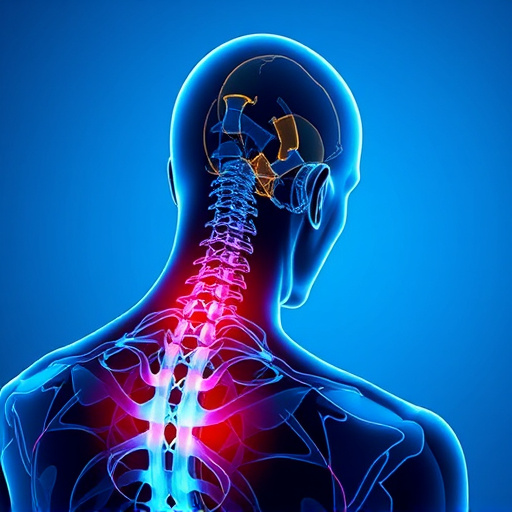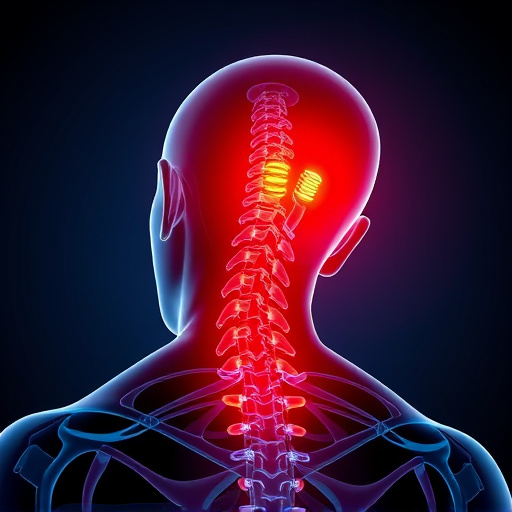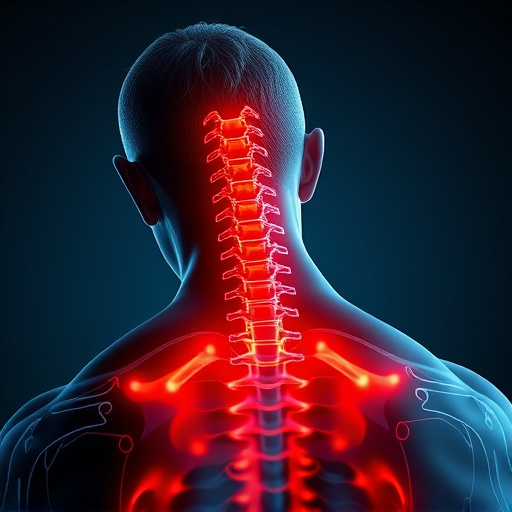Bodily discomfort, from muscular strains to chronic pain syndromes, requires tailored care. Whiplash treatment specialists address complex neck and back conditions, offering personalized treatments including manual adjustments, massage, acupuncture, chiropractic care, and mind-body practices. They collaborate with a multidisciplinary team for holistic care, improving mobility, preventing complications, and enhancing quality of life. Physical therapy, exercise, balanced lifestyle, and stress management are key preventive measures. Case studies show successful integrated approaches, highlighting the impact of specialists in revolutionizing chronic discomfort management.
Experience lasting relief from bodily discomfort with an integrated approach. This comprehensive guide explores various strategies, from understanding common causes like whiplash to holistic therapies and lifestyle adjustments. Discover how a whiplash treatment specialist plays a pivotal role in your recovery journey, combining physical therapy with posture correction for optimal mobility. Learn from inspiring case studies, unlock prevention tips, and reclaim your comfort today.
- Understanding Bodily Discomfort: Causes and Common Conditions
- The Role of a Whiplash Treatment Specialist in Comprehensive Care
- Integrating Holistic Therapies for Effective Relief
- Physical Therapy Techniques for Posture and Mobility Improvement
- Lifestyle Adjustments to Prevent and Manage Discomfort
- Case Studies: Success Stories of Integrated Bodily Discomfort Reduction
Understanding Bodily Discomfort: Causes and Common Conditions

Bodily discomfort is a complex and multifaceted issue that can arise from various sources, affecting individuals in profound ways. It’s important to understand that what feels like mere discomfort to one person might be a debilitating condition for another. From muscular strains to chronic pain syndromes, the human body often sends signals of distress through sensations of soreness, stiffness, or sharp pains.
One prevalent and often misunderstood condition is whiplash, a common injury resulting from rapid back-and-forth movements, typically experienced in car accidents. While whiplash treatment specialists play a crucial role in managing symptoms, it’s essential to recognize that this is just one facet of bodily discomfort. Conditions like arthritis, fibromyalgia, and nerve damage also contribute to chronic pain experiences, requiring tailored approaches for effective management and relief.
The Role of a Whiplash Treatment Specialist in Comprehensive Care

A whiplash treatment specialist plays a crucial role in comprehensive care for individuals experiencing bodily discomfort, particularly following motor vehicle accidents or other traumatic events. These specialists are trained to assess and diagnose complex neck and back conditions often associated with whiplash, employing advanced techniques to develop personalized treatment plans. Beyond physical therapy, they may incorporate manual adjustments, massage, and other therapeutic modalities to address the multifaceted nature of whiplash symptoms.
Their expertise extends to collaborating with a multidisciplinary team, including healthcare professionals like chiropractors, physiotherapists, and doctors, to ensure holistic care. By integrating various treatments, a whiplash treatment specialist can help patients manage pain, restore mobility, and prevent long-term complications. This collaborative approach is essential for optimizing recovery and enhancing the overall quality of life for those affected by whiplash-related injuries.
Integrating Holistic Therapies for Effective Relief

In the quest for comprehensive bodily discomfort relief, many individuals are turning to holistic therapies, often with remarkable success. These therapeutic approaches, far from being isolated practices, offer a synergistic effect when integrated, making them powerful tools in the hands of whiplash treatment specialists. By combining techniques such as acupuncture, chiropractic care, massage therapy, and mind-body practices like yoga or meditation, healthcare providers can address the root causes of discomfort rather than merely managing symptoms.
This integrative approach ensures that each aspect of an individual’s well-being is considered. For instance, a whiplash treatment specialist might combine chiropractic adjustments to realign the spine with acupuncture to promote healing and reduce inflammation. This holistic integration not only provides immediate relief but also fosters long-term resilience against future discomfort.
Physical Therapy Techniques for Posture and Mobility Improvement

Physical therapy plays a pivotal role in an integrated approach to reducing bodily discomfort, especially for individuals dealing with issues like poor posture and limited mobility. Skilled therapists employ a range of techniques tailored to address specific needs, from manual therapy to exercise prescription. For patients suffering from conditions like whiplash, a whiplash treatment specialist can offer targeted interventions to alleviate pain and restore function.
These specialists utilize hands-on methods to manipulate the spine and joints, reducing muscle tension and improving circulation. They also design personalized exercise programs focusing on strengthening muscles supporting the spine and enhancing flexibility. Such comprehensive care not only provides immediate relief but also empowers individuals with long-term strategies for maintaining optimal posture and mobility, thereby significantly reducing the risk of future discomfort and related health issues.
Lifestyle Adjustments to Prevent and Manage Discomfort

Maintaining a healthy lifestyle is a proactive step in preventing and managing bodily discomfort, especially for conditions like whiplash that often require long-term care from a whiplash treatment specialist. Simple adjustments can significantly impact overall well-being; for instance, regular exercise strengthens muscles and improves flexibility, reducing the risk of strain or sprain injuries that could lead to chronic pain. A balanced diet rich in nutrients supports tissue repair and inflammation reduction, aiding in faster recovery from acute discomfort. Additionally, adequate sleep allows the body’s natural healing mechanisms to function optimally, preventing delayed-onset muscle soreness.
Ergonomics play a crucial role in discomfort management. Adjusting work stations and adopting neutral posture while sitting or standing can alleviate stress on muscles and joints. Breaking up prolonged periods of static activity with short active breaks helps maintain blood flow and prevents stiffness. Moreover, managing stress through mindfulness practices or light stretching can significantly reduce muscle tension and associated discomfort, emphasizing the mind-body connection in overall health management.
Case Studies: Success Stories of Integrated Bodily Discomfort Reduction

In the realm of bodily discomfort relief, case studies serve as powerful tools, offering tangible examples of successful integrated approaches. These stories from real-life patients highlight the impact of comprehensive strategies tailored to address specific issues, such as whiplash. For instance, a study focused on individuals suffering from chronic neck pain due to car accidents revealed remarkable outcomes through a combined therapy program. This involved a collaboration between physiotherapists, chiropractors, and massage therapists who worked synergistically to target muscle tension, improve spinal alignment, and enhance flexibility.
The integrated approach proved highly effective, leading to significant reductions in pain levels and improved mobility within a few months. Such success stories not only reinforce the value of multidisciplined care but also establish whiplash treatment specialists as pivotal figures in revolutionizing patient outcomes. By combining diverse therapeutic techniques, these specialists can foster metamorphosis, transforming chronic discomfort into manageable conditions, and enhancing patients’ overall quality of life.














